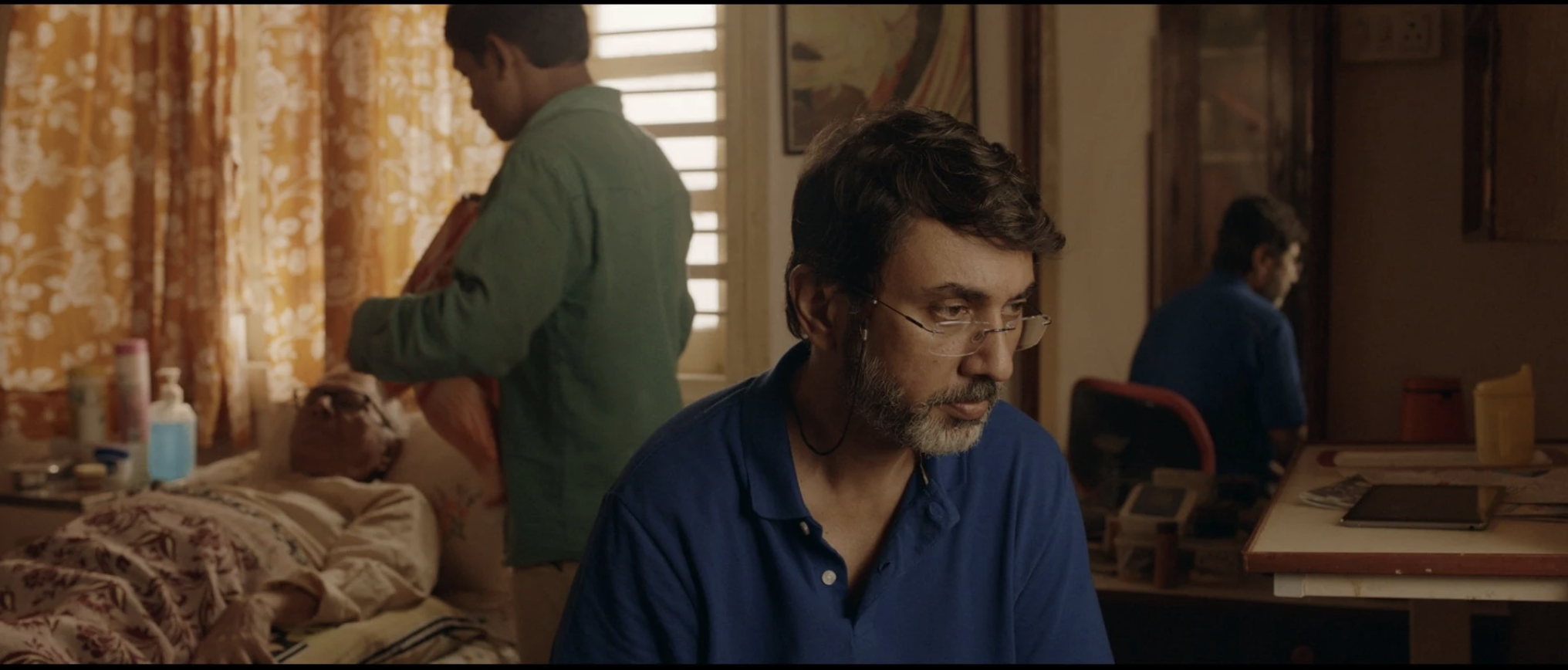Caregiving roles are reversed in Shuchi Kothari’s film Shit One Carries
There is metaphorical shit we all carry – guilt, anxiety, regret, longing (insert your emotional baggage here) – and then there is actual shit.
As Avinash, the protagonist in Shuchi Kothari’s fictional directorial debut Shit One Carries, finds out in the most unpleasant circumstances, that shit needs to be dealt with too.
Avinash didn’t ask for this. He has a comfortable, if not demanding job as a Silicon Valley engineer, a whole life built oceans away from where he finds himself now: at his elderly father’s bedside in India, taking care of the man who once was his own caregiver.
Shit One Carries premiered at the New Zealand International Film Festival before making its way around the international festival circuit to the 2019 South Asian Film Festival of Montreal. For Kothari, an Indian-Kiwi filmmaker and educator based in New Zealand, the film is deeply personal. “I wrote the script during a recent visit to India when my mother had a fall and was confined to bed,” said Kothari in a statement. “During this visit, I caught up with Director of Photography Mrinal Desai. To my rather innocuous question, ‘how’s your morning going?’ he replied, ‘Spent most of it trying to figure out who’s going to wipe my father’s ass.’ This statement gave birth to the story.”
Taking on a caregiver role can often be a thankless job. This isn’t a nurse-patient relationship, this is family. And these are not unfamiliar scenes; Avi’s father is disgruntled, impatient, maintaining his stubbornness in lieu of agency. Avi is distracted, he punctuates each strained interaction with a business call, a smokeless cigarette break. He’s there, but the distance between the two men is palpable.
“The struggle to ‘do the right thing’ manifests itself peculiarly in the Indian parent-child relationship where cultural norms and social pressures expect that all children, when grown-up, will return the gift of selfless caregiving,” said Kothari. This film, which screened as part of a selection of films from the diaspora, directly confronts the cultural and generational disconnection that can open up over place and time. In 14 short minutes, a father’s long-held expectations collide with his son’s reality.
Kothari revels in the moments where the discomfort rises to the surface and the avoidance is clear; uncomfortable pauses are hastily filled with small talk. The recognition of the other’s vulnerability is magnified under flickering fluorescent lights, and just as quickly dismissed as attendants and visitors shuffle in and out of the house. The question, ‘How are you?’ doesn’t warrant an honest response.
And then, well, shit happens. The attendant isn’t there, his father soils himself, and Avi is left to face something he never imagined having to do. He enters his father’s room cautiously, at once disgusted by the situation and overwhelmed by what it means to fully take on the responsibility of caring for someone you love. There is no more distance. Just a father and son, and a container of baby wipes.
Kothari’s film speaks to something bigger than a strained father-son relationship; at a time when baby boomers are approaching and settling into retirement, an uncomfortable new dynamic is emerging. Younger generations are grappling with the unspoken expectations of taking on the caregiving role, and in navigating these new responsibilities, a question is posed: What does how we treat our elders say about our societal values? When it comes to the unique context of diaspora communities, how do these North American values conflict with long-held cultural norms? What, as Kothari puts it, is the right thing to do?
Kothari doesn’t provide a simple answer, perhaps because there isn’t one. But in the final scene of the film, as Avi sits in solitude, wrestling with these questions himself, his father’s attendant offers a small piece of advice: “It takes a while.”




